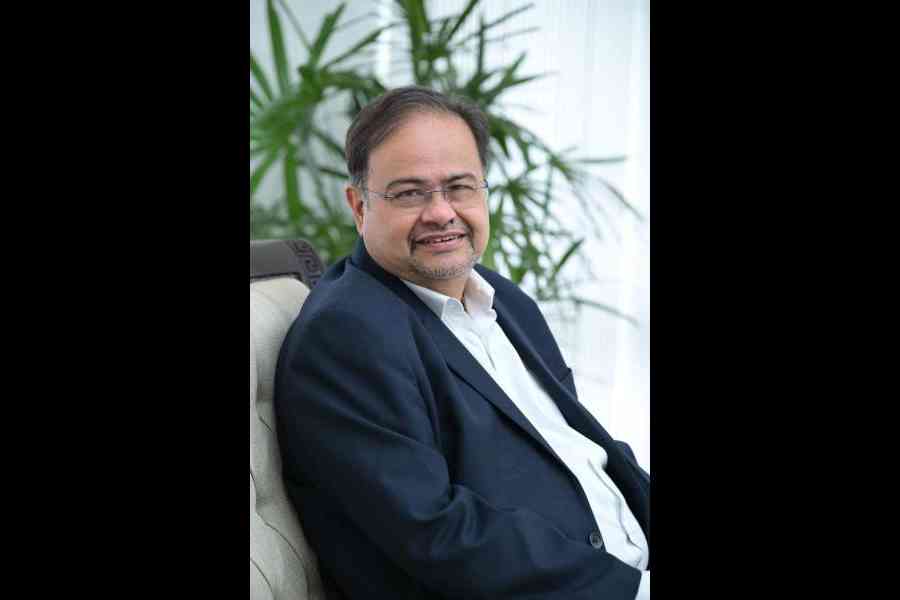Future Managers


The Indian Institute of Management- Kozhikode (IIM-K) is one of the newer IIMs. It ranks third in the list of top B-schools in India, according to the National Institutional Ranking Framework. Prasun Chaudhuri caught up with Debashis Chatterjee, who is the current director, and interviewed him about the future of MBA programmes. Here are excerpts:

Q You have been known to say that at present engineering graduates are more in demand than those with management degrees. Does this mean that the MBA curriculum needs to have many more technology components added to it?
Not at all. Rather than focussing solely on technical skills, MBA programmes should equip students with a broader understanding of how technology can be harnessed to drive business transformation, strategy, and innovation. It is equally important to harness candidates’ emotional intelligence as future challenges will pit them against artificial intelligence (AI). In short, while technology is an important aspect, it is equally crucial to focus on the application of technology with a human-centric approach in solving real-world business problems. The curriculum at IIM-K reflects this balanced approach.
Q AI technology is developing by leaps and bounds. Are you making changes in the curriculum that are commensurate with these developments?
The rapid development of AI technology is undoubtedly a significant factor shaping the future of business and education. It’s not just about AI but about how it is transforming industries, creating new business models and reshaping customer expectations. As a result, it’s becoming increasingly important for MBA programmes to evolve in response to these changes. At IIM-K, we recognise this shift. Our curriculum incorporates emerging technologies like AI, machine learning and data analytics, not only as standalone topics but also as tools for enhancing business strategy and leadership. This allows our students to develop a deeper understanding of how these technologies can be leveraged to solve complex business problems and make informed decisions.
Q Is it possible to integrate BTech and MBA in a single course?
It is certainly an exciting prospect, but it requires careful consideration and design to balance both technical depth and managerial breadth. The National Education Policy (NEP) 2020 puts emphasis on multidisciplinarity. While the idea of a dual-degree programme that combines the strengths of both disciplines is compelling, it requires a forward-thinking approach that will carefully balance the technical rigour of engineering with the leadership and strategic focus of business education. It’s a model worth exploring, but it requires careful curriculum planning to ensure students receive a comprehensive and high-quality education.
Q Do you plan to make MBA courses future-ready, with sections on climate change, green energy, sustainable/ethical practices and basic principles of science?
At IIM-K, we recognise that sustainability is no longer just an option — it is a necessity. As we move towards an increasingly complex future, addressing climate change, green energy and sustainable practices have become integral to the way we educate our future leaders. This is why we are committed to making our MBA courses “future-ready” by embedding these critical themes in our curriculum. Sustainability is deeply ingrained in our school’s philosophy. Our guiding principles — nityam (sustainability), satyam (authenticity) and purnam (fulfillment) — reflect our commitment to responsible, ethical and impactful practices. Nityam, in particular, emphasises the importance of sustainability, not only in business but also in the broader context of societal well-being.
In line with this, we have taken several steps to integrate sustainability into both our curriculum as well as campus culture. Our India-Japan Centre for Culture and Climate is a centre of excellence focussed on environmental safeguards and disaster management. It is also tasked with developing sustainable ecosystem solutions. Additionally, our campus itself is a testament to sustainability efforts. With over 650 species of lifeforms calling it home, and a water-neutral campus, IIM-K practices what it preaches. The Green Campus certification for Phase 5 of our campus further reinforces our commitment to an eco-friendly environment.
That apart, we offer specialised courses on sustainability and regularly invite industry leaders, including chief sustainability officers from top corporations, to share their insights. Researchers and academics also contribute towards making our students aware of the latest trends, innovations and challenges in sustainable business practices.
Q You have mentioned one of the finest Indian educators, Prof. Yash Pal, in your book Leadership Chronicles: My experiments with Globalizing Indian Thought. He had
the foresight to advocate that all students should be taught the basic concepts of science, technology and environment.
Professor Yash Pal was a one-of-a-kind teacher. He had a doctorate in physics from the Massachusetts Institute of Technology, US and was an institution builder He could simplify complex subjects. There is a saying, a good teacher explains but a great teacher enlivens subjects. Pal brought to life the theories of science.
If a student asks the average physics teacher what gravity is, chances are he will get an explanation that is either too abstract or too mathematical. But this is how Yash Pal would explain the concept. He would draw a circle to represent the earth. Then he would draw tiny human figures standing around the circle. He would point to a human form on top of the circle and say, “The little human is standing upright right at the top. That is not so surprising. But look at the fellow standing upright at the bottom of the earth. Do you now know what gravity is all about?”
Yash Pal would thus immerse the whole class in the mystery of the gravitational force. Great teachers like him highlight the difference between the explicable and the inexplicable, combining logic and magic, igniting moments of revelation, which take students to the core of knowledge.